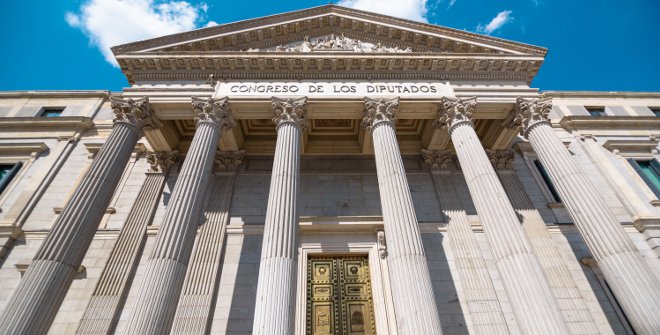Repetition of general elections in Spain: the deadlock scenario persists
12 November 2019 /
Manuela Sánchez Gómez 4 min

This article is an external contribution from an independent editor.
Last Sunday, Spain had its fourth general election in four years to elect its next Head of Government. On June 1, 2018, the Congress supported the motion of no-confidence filed against Mariano Rajoy, leader of the conservative People’s Party (PP). As a consequence, Pedro Sanchez, the leader of the Spanish Socialist Workers’ Party (PSOE), became the president of the government with the support of separatist and populist parties. Given the impossibility of passing Spain’s 2019 budget and the lack of support from other parliamentary groups, general elections were called for in April 2019. Although the Socialist Party was the clear winner of the elections, the lack of agreement between parties on the left caused the National Parliament to be dissolved on September 24 and elections to be called for on November 10.
An electoral campaign marked by the repetition of elections, the Catalan independence movement and the warnings of the European Commission
The electoral campaign, shorter than usual, has been characterized by three very relevant facts. First, the electoral repetition. Yesterday’s general election arises on the occasion of the failed investiture of the socialist Pedro Sanchez, who was unsuccessful in obtaining a majority to form a government despite the PSOE being the most voted party on April 28. Second, the polarization of the Catalan conflict. On October 14 the Supreme Court found that independentists Catalan leaders were guilty of sedition, which caused the radical right-wing party (VOX) to consolidate its anti-independence message. They were sentenced to 9-13 years in prison for organizing the independence referendum in 2017, as well as for unilaterally declaring the independence at the Catalan parliament afterward. Third, the fact that the European Commission warned of increased spending and the possible breach of the debt rule. The European Commission requested the next Government to send an updated budget plan as soon as the draft of the budget is registered in the Congress, since in the accounts presented on October 15 by the socialist government, Spain is at an “important risk” of deviating from the fiscal adjustment required by Brussels by 2020.
Electoral results

Results of Spanish general elections
Source: El País
The most relevant changes in the allocation of votes
The irruption of the populist radical right: Spain is no longer an exception in Europe
Since the 1980s in Spain, two parties have alternated in government: the conservative People’s Party and the Spanish Socialists Workers’ Party. However, in 2015 the traditional left-right bloc was divided with the irruption of liberal Citizens – Party of the Citizenry (Ciudadanos) and United We Can (Podemos), far-left party. In the elections held last April, for the first time since the establishment of democracy, a far-right party, VOX, won representation in the Congress. Spain starts to imitate other European countries with a far-right party with a strong nationalist and populist character on the rise.
The moderate party does not find its place among the electorate
Ciudadanos, that was born with the promise of being the benchmark for those moderate voters with a marked liberal discourse and that where particularly concern about the unity of Spain, has failed to retain its adepts. The party, which has gone from having 57 seats to having 10 and becomes the sixth most-voted party, is the great loser of the electoral repetition. As a result, more than half of its leadership team will be excluded from the National Parliament. Ciudadanos’ leader announced yesterday that the party executive committee will be convened in order to clarify the party’s future.
Governance scenario: It is still difficult to form a government
The results of the November 10 elections have generated a blocking scenario in which any governance option will be very complicated. However, the scenarios that arise today are the following:
- Coalition on the left with the peripheral nationalist parties. In this case, not only PSOE and Podemos have to agree, since the regionalist parties of the Basque Country and Galicia should also join the coalition. In addition, the independence Republican Left of Catalonia–Sovereigntists (ERC) needs to vote in favor.
- Agreement between the Socialist and the Popular Party, the two parties that have led Spanish politics for more than 30 years. These two parties have traditionally been rivals and a part of their electorate would be disappointed by the agreement.
- Repetition of elections if no agreement is reached. Although it seems to be the least desired scenario, it cannot be ruled out.
Manuela Sánchez Gómez is a Doctoral Candidate International Law and alumni of Institute for European Studies (ULB), ad well as a Public Policy Consultant.
